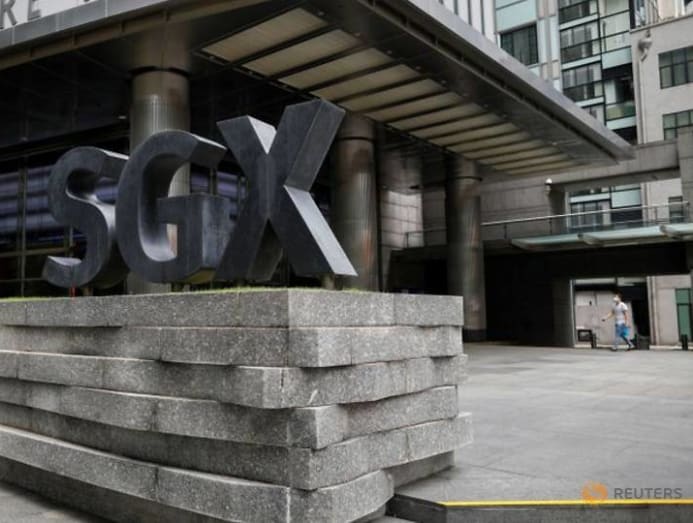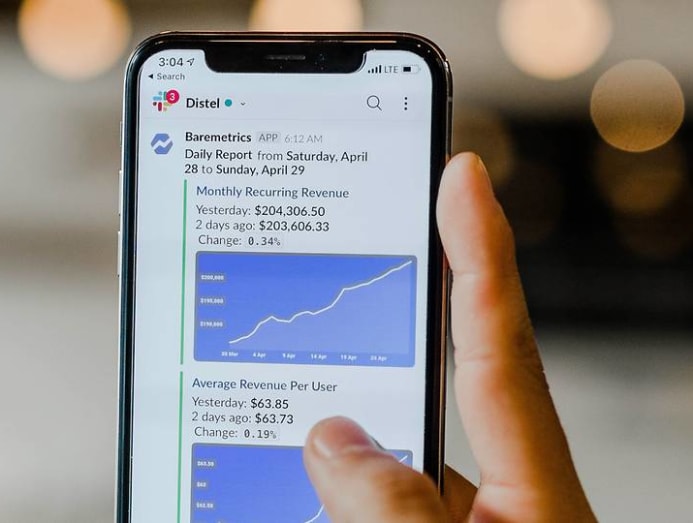Commentary: When and what to buy? At what age? Investing for retirement in a COVID-19 economy
SINGAPORE: For every Singaporean senior looking forward to saving plenty to enjoy retirement, the COVID-19 pandemic has been a rude awakening.
COVID-19 has upended unabridged industries and created dubiety for many jobs.
While Singapore'due south economy is expected to recover by 4 to 6 per cent this yr, there is an economist consensus growth will exist gradual, uneven with little relief for sectors related to air travel.
Jobs and fresh opportunities created with the slew of government schemes, including the Jobs Growth Initiative, Task Back up Scheme and SGUnited Jobs and Traineeships have provided a ballast against unemployment for well-nigh Singaporeans.
But how have y'all nursed your nest egg during this period? Did you capitalise on opportunities during the global financial market place's longest recorded bull run ever or did you withdraw for fear of losing it all?
READ: Commentary: You can still retire at 40, even with a longer life expectancy
You don't have to be a financial good to know COVID-nineteen has resulted in market volatility and huge uncertainty. Only investing wisely without taking on undue run a risk can help you realise gains and reach your retirement goals.
STAY INVESTED IN MARKETS
News of GameStop'south incredible surge have fueled interest in investment strategies that trounce the market.
Only staying invested over the long term has been a better, Proven strategy where financial markets typically trend upward and market fundamentals remain.
While it may be turbulent over the terminal year, financial markets have weathered major crises over the past 60 years including the 1973 oil embargo, the 1987 Stock Market Crash, September 11 terrorists attack, and the global financial crunch in 2008.
Speculators got badly bruised with panic selling and plunges in stock prices simply long-term portfolios recovered eventually.

Warren Cafe explained that this growth trajectory has to practice with ii key factors: Improvements in productivity and innovation. He said the opportune time to add to your portfolios were during troughs.
Similarly, Shelby Cullom Davis, an American man of affairs and philanthropist also said: "You lot made virtually of your coin in a bear market, you only don't realise it at the time".
READ: Commentary: Withal paying off your housing loan at 65? Five rules to a happy retirement
READ: Am I planning right for retirement, particularly in a downturn? Financial experts reply some mutual questions
US uppercase markets have rewarded investors for such strategies that stay the course. Research shows such portfolios have gained total returns of more than 14,000 per cent.
And what if you lot stayed the class for the most function simply missed out after withdrawing during volatile periods of trading due to fear? That same CNBC study points out that portfolios missing out on the all-time 10 days each decade made only 91 per cent.
If none of what happened with GameStop made sense to you, mind to financial veterans break down how different players powered the surge and which listed visitor could see copycat attacks in CNA'due south Eye of the Matter podcast:
IDENTIFY UNDERVALUED STOCK
Another piece of advice investors often give is to look for value before the market can. Some identifiable strategies include assessing if prices had been driven by emotions rather than changes in fundamentals.
In 2020, many regional indices with strong fundamentals are oversold or under-priced, every bit panic step in.
I example is the Hang Seng Index, which fell to a depression of 21,139 in March 2020, and closed around thirty,000 on Jan 21, 2021, against a 27,581 average in 2019.
Many industries benefitted from the digitalisation leap the globe has made during COVID-19 The tech industry had a bountiful twelvemonth, with shares of Amazon and Alphabet hitting tape high. The logistics and medtech sectors grew as well.
READ: Commentary: Multibillion-dollar wizards – how COVID-xix is exposing what'south behind the pall
Context is too chief. Typically, in a bear market, like the 1 we experienced in 2020, equities are nigh negatively affected, while commodities such as gold, are expected to see surges.
FOCUS ON A DIVERSIFIED PORTFOLIO
Making option bets can exist difficult. It may be improve to focus your efforts on ensuring a well diversified portfolio with various nugget classes including equities, fixed income, alternatives and so forth, spreading across unlike regions and sectors.
Here'southward a unproblematic illustration. Take these three people. A invested in simply ane stock – SPH Holdings (no diversification – unmarried company). B invested in i fund of Singapore equities (minimal diversification – single state, diverse sectors). C invested in an Asian fund (more diversification, in term of regions and industries).
Over the final 5 years, A saw his investment halve in value, without having the option to diversify. B's portfolio (Nikko AM Singapore Dividend Disinterestedness Fund) gained a return of an annualised 3.5 per cent, whereas the more diversified Schroder Asian Growth Fund saw a healthy 13 per cent annualised proceeds.

One thing people have asked me is whether real estate and rental in Singapore remains an attractive investment. Simply with rental yields at ii to 4 per cent, in that location are many investment funds with higher returns and less hassle.
Starting time YOUNG
Compounded returns as well plays a vital function in growing your investment. I cannot stress this enough.
Assuming two individual of the same historic period, with well diversified investment portfolios, wanted to invest for their retirement.
A started early at 35, and friend B, 10 years later, at 45. Both invested S$100,000 and the annualised returns are similar at 5 per cent. What's the divergence?
READ: Commentary: How Tencent, that other Chinese Large Tech giant, is chirapsia a path to a trillion dollars
When both achieve age 65, B's investment would have grown to around S$265,000. Withal A's investment grows by a whopping four times to more than than Southward$430,000.
Starting investment early on will allow y'all to benefit from compounded returns.
TAILOR YOUR STRATEGY According TO Historic period
Your age should shape your investment objectives and portfolio choices.
At 35, your fundamental focus of the portfolio should be on upper-case letter growth, to build up a sizeable capital base. It should exist equities heavy, consisting 80 per cent of the unabridged portfolio.
These should be in growth companies, new beginning-ups, industries and sectors that emphasises innovation, connection to the future economy like the Cyberspace of Things, and some other aggressive funds.
Simply to buffer yourself against these high-risk avails, you may want to consider counter-cyclical assets like golden. On average, a major crunch hits the financial market place every decade.
The rest 20 per cent should exist in safer assets such as money market place funds, government bonds and cash.
READ: Commentary: Alibaba makes a whopping Usa$28 billion bet on its side by side breakthrough human activity
READ: Commentary: When it comes to insurance, less is more for immature adults starting out
At age 45, your focus should shift to value investing, instead of continuing along an aggressive growth path.
Value investors volition scout for diamonds in the rough: Investments undervalued and have significant opportunity to abound and appreciate, when market sentiment eventually recovers.
Nigh seventy per cent of your portfolio should incorporate equities, with some percentage in safer alternatives such as gold, and the remaining thirty per cent or less on safer assets such equally money market funds, authorities bonds, fixed deposits and cash.

At 55, your investment goal should be on building up fiscal asses offer regular, consistent and life-long passive income. Growing the capital base of operations now takes a dorsum seat.
Investing in shares, funds and other fiscal assets with a good record of paying regular and attractive dividends, should be a priority.
Merely be careful non to err on the side of existence overly risk averse. One rule of thumb is to ensure equities become no further than 50 per cent of your full portfolio, and the residue in safer asset classes, including fixed deposits.
At 55, yous can withdraw some money from your CPF account but beware of investment scams that have in contempo years targeted this group.
What virtually those with more cash thinking of topping your CPF savings to the Enhanced Retirement Sum? Would having the Basic Retirement Sum be enough? Information technology largely depends on your individual circumstances and retirement goals.
READ: Commentary: Letting a robo-adviser determine how to invest your money is a double-edged sword
READ: Commentary: The yr hackers and scammers exploited our COVID-nineteen fears to crook u.s.a.
The Basic Retirement Sum would exist a good choice for the investment-savvy. They accept the knowledge, expertise and confidence to invest elsewhere for higher returns.
For those keen to diversify retirement income streams, choosing to have simply the Basic Retirement Sum may exist a palatable selection, for more cashflow.
And for everyone with little risk-taking appetite, having the Enhanced Retirement Sum can be attractive, especially when it provides life-long guaranteed passive income and tin can be bequested to loved ones in the event of their passing.
You lot tin can work difficult merely you lot should as well make your coin work hard for yous to accrue enough for retirement. A COVID-19 economy might shake upwards our understanding of risk only is no reason not to become smart on money.
Patrick Chang is the writer of The A to Z Guide to Retirement Planning and producer of fiscal literacy menu game Affluent. This commentary does not constitute financial advice, which you should seek from a trusted, independent financial advisor.
Source: https://cnalifestyle.channelnewsasia.com/commentary/commentary-when-and-what-buy-what-age-investing-retirement-covid-19-economy-290936
0 Response to "Commentary: When and what to buy? At what age? Investing for retirement in a COVID-19 economy"
Post a Comment